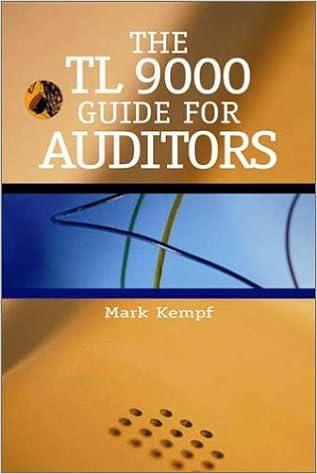Question
Scenario: The semester has drawn to a close, and final grades have been published. Given below are the profiles and actions of four part-time students
Scenario: The semester has drawn to a close, and final grades have been published. Given below are the profiles and actions of four part-time students (Professional Accountants) who manage full-time jobs alongside their studies. These students, due to their limited financial resources chose online learning as the perfect solution to balance their work and educational commitments.
Student 1: The Model Student. This student demonstrated commendable dedication by diligently studying the study guide and creating a timetable that allocated study hours during the week. They also planned their leave in advance to prepare for exams. Their efforts led to a pass mark of 55%, but they aspire to perform even better. To this end, they reached out to the professor seeking advice for improvement.
Student 2: The Overthinker. Faced with the vast volume of study materials, this student was overcome with anxiety and lost their way amidst their workload. They did not devise a structured study plan and ended up scrambling through the work, which led to failure in the course. In their frustration, they demanded repeated explanations from the professor, adding an undue workload on the professor and potentially causing delays for other students waiting for responses.
Student 3: The Blame Shifter. This student, too, failed but their reaction was to avoid responsibility. Instead of acknowledging their failure, they lashed out at the university, accusing it of poor service and threatening to shame it publicly on social media. This conduct amounts to cyberbullying and blackmail, which are serious offences.
Student 4: The Pretender. This student made a superficial attempt to study the course material but did not take the time to understand it. As a result, they failed. Instead of accepting their failure, the student's parents contacted the professor, blaming the university and expressing disappointment over what they perceived as a poor quality of education.
REQUIRED: With the use of the International Federation of Accountants (IFAC) Code of Ethics, thoroughly analyse the behaviour of each of these students. Discuss how their actions are in violation or alignment with the IFAC code, and the potential impact of their behaviour on their future professional endeavours. Consider factors such as integrity, professional competence, professional behaviour, and confidentiality in your analysis. Each analysis should include:
1. The relevant IFAC Code of Ethics provision.
2. A discussion of the student's behaviour in relation to the code.
3. A conclusion about the implications of the student's behaviour.
4. Suggestions for how the student could have acted more ethically and responsibly.
Step by Step Solution
There are 3 Steps involved in it
Step: 1

Get Instant Access to Expert-Tailored Solutions
See step-by-step solutions with expert insights and AI powered tools for academic success
Step: 2

Step: 3

Ace Your Homework with AI
Get the answers you need in no time with our AI-driven, step-by-step assistance
Get Started


